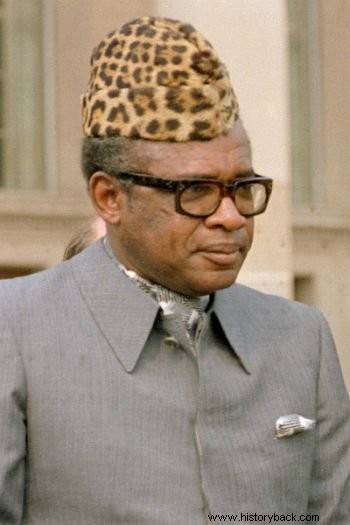The independence of Congo, which belonged to Belgium, took place in 1960, after violent conflicts and popular demonstrations. The country went through a dictatorship and, in 2012, the Congolese people began to face a war that has not yet ended.
Congo belonged to the King of Belgium, Leopold II, who received the territory of 2.3 million square meters after the Berlin Conference. From the personal patrimony of a monarch, the Congo became a Belgian colony in 1908.
Among the obstacles to peace in that country are the deposits of diamonds, tin and copper, which incite and fuel conflicts to this day.
During the period of the struggle for liberation, the main responsible for the exploitation of Congolese deposits was the União Mineira do Alto Katanga . Based in Brussels, the international society planned the economic control of Congo after independence.
When independence was proclaimed, the government was in the hands of Joseph Kasavau and Prime Minister Patrice Lumumba. Days later, Moisés Tshombe, who was governor of Katanga, promoted the succession of the province and the country went through a civil war.
Interested in controlling the exploitation of mineral wealth, Belgian mercenary troops and international groups supported the separatist movement at the cost of many assassinations.
There was an attempt to interfere by the UN (United Nations), which sent a peace mission to the country at the request of the Congo government. The UN's action, however, had no effect because there was no interference in the internal disputes.
Different factions came to control the country, which, in order to fight, received support from mercenary forces, groups from Belgium, the United States, Rhodesia and the Portuguese who were in Angola.
Among the violent episodes, one of them shocked public opinion. President Kasavau ousted Prime Minister Lumumba, who was handed over to the rebels and then assassinated.
When the UN withdrew the peacekeeping force in 1963, Kasavadu appointed Tshombe as prime minister and thus managed to defeat the rebel factions. Tshombe, however, was removed by the president, and he himself suffered an army coup in 1965.
Mobutu
As a representative of the Army, Joseph-Désiré Mobutu (1930 - 1997) assumed power and started a dictatorship with military support from North American and European groups. It was in 1990 that Mobutu established multipartyism, in response to popular pressure he suffered.
Popular pressure also resulted in a general strike in 1991 and, once again, Mobutu relented. This time he granted amnesty to the exiles. He stayed in power until 1997, when he had to leave the country after a series of uprisings promoted by Laurent Kabila.
In the 30 years he was in power, Mobutu changed the name of Congo to Republic of Zaire in 1971, and defended the Africanization of the region. The speech, however, was no more than a facade. In the middle of the Cold War, the United States supported the dictator's actions with a policy to avoid the Soviet Union's control of central Africa.
 Mobutu installed a personal dictatorship that lasted 30 years in Congo
Mobutu installed a personal dictatorship that lasted 30 years in Congo
On the part of Europe, support was granted by France. The two countries maintained close economic relations and Charles De Gaulle made several visits to Congo, when it was still called Zaire.
There were also close relations with Belgium, which remained interested in maintaining the industrial exploitation of Congolese deposits.
Mobutu's departure from power meant that the name Republic of Congo was taken back. The internal conflicts, however, did not cease.
Congo in the Present Day
The Democratic Republic of Congo is one of the most violent countries in the world. In this part of the country, of just 2.3 million square meters, 6 million victims have already been claimed. It was the war that claimed the most casualties since World War II (1939 - 1945).
Dressed as ethnic wars, however, the conflicts represent disputes over space and control of Congolese minerals that are smuggled to other countries, such as Uganda, Burundi and Rwanda. The wars continued with events considered to be of extreme disrespect for human rights. Murders, rapes and beheadings were common.
To understand better, complement your research with articles :
- Pre-Colonial Africa
- Decolonization of Africa
- General Aspects of Africa
- Berlin Conference
- Civil War
